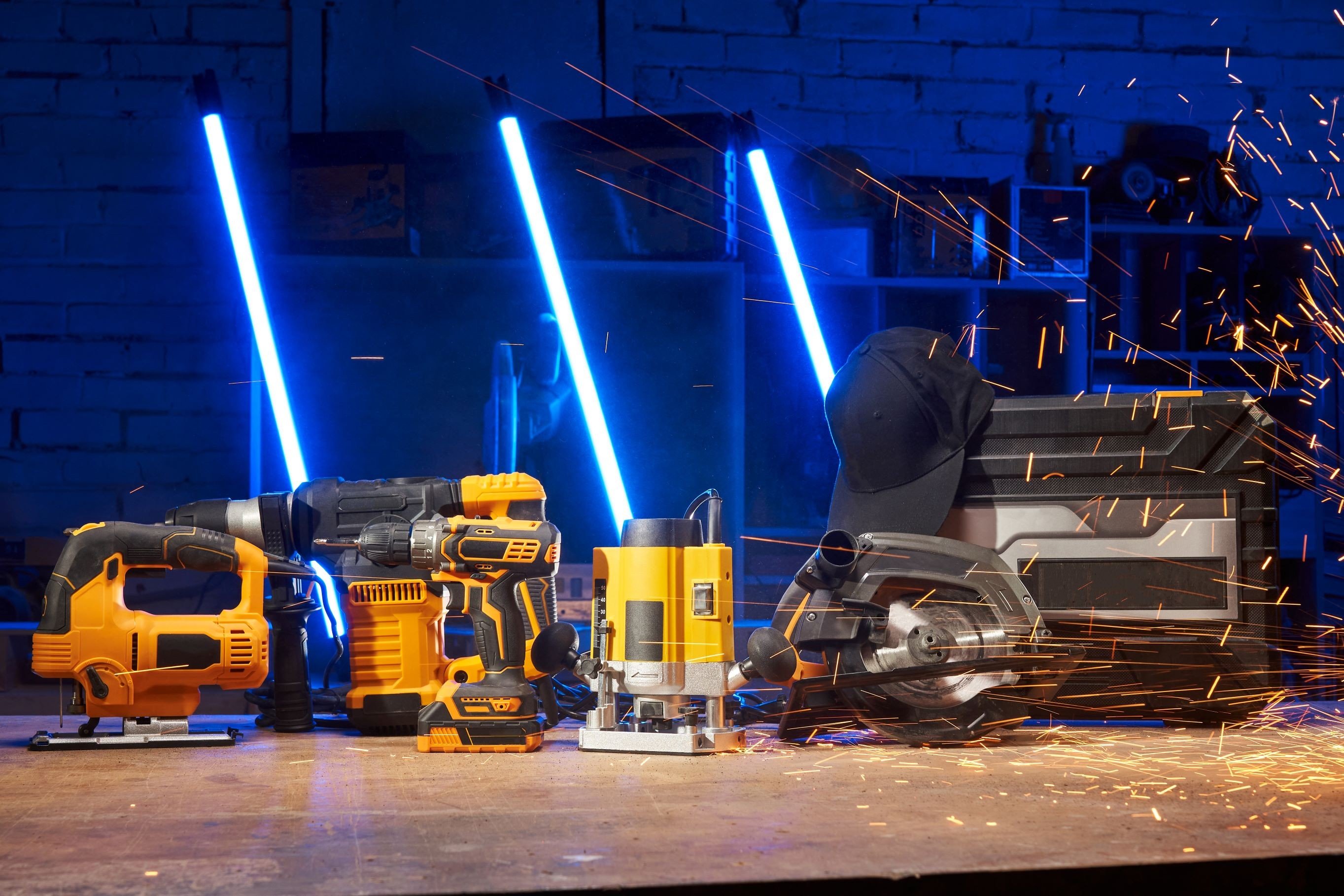Five Tools Everybody Is In The Power Tool Industry Should Be Using
Understanding Power Tools: Essential Guide for DIY Enthusiasts and Professionals
Power tools are important instruments that change how jobs— from basic repair work to intricate building activities— are performed. The development of these tools has actually considerably improved effectiveness, precision, and safety in numerous fields, including building and construction, woodworking, metalworking, and automobile repair. In this short article, we will explore different types of power tools, their applications, precaution, upkeep, and typically asked questions.
Kinds Of Power Tools
Power tools can be broadly classified into two primary types: corded tools and cordless tools. Each category includes a variety of gadgets matched for particular tasks. Below is a table summarizing some common kinds of power tools and their applications.
Type of Power Tool
Typical Examples
Primary Applications
Drills
Cordless Drills, Hammer Drills
Drilling holes in wood, metal, or masonry
Saws
Circular Saws, Jigsaws, Miter Saws
Cutting wood, metal, and other products
Sanders
Orbital Sanders, Belt Sanders
Smoothing surfaces and preparing products
Mills
Angle Grinders, Bench Grinders
Grinding, cutting, and polishing materials
Nailers
Cordless Nail Guns
Securing materials utilizing nails or staples
Impact Drivers
Cordless Impact Wrenches
Driving screws and bolts rapidly and successfully
Applications of Power Tools
Power tools have a broad array of applications across various sectors. Here are a few of the primary environments where power tools are commonly used:
- Construction: Drills, saws, and nailers are vital for framing, roofing, and general building and construction tasks.
- Woodworking: Saws, sanders, and routers are popular amongst woodworkers for crafting furnishings and cabinets.
- Metalworking: Angle mills, drill presses, and welders are vital for those dealing with metal structures and parts.
- Automotive: Impact wrenches and diagnostic tools are commonly used in repair work and maintenance of cars.
- Home Improvement: For DIY projects, homeowners often employ drills, saws, and nail guns for remodellings and repairs.
Precaution
While power tools are useful, they can likewise present significant threats if not utilized properly. Here are necessary precaution to consider when using power tools:
- Personal Protective Equipment (PPE): Always use suitable equipment, such as safety goggles, gloves, and ear security.
- Check out the Manual: Understanding the tool's handbook is crucial for safe operation.
- Check Tools Regularly: Before each use, look for damage or use that could affect performance or security.
- Protect Workpieces: Use clamps or vises to protect your workpieces to avoid motion throughout operation.
- Maintain a Clean Work Area: Clear your work area of mess to minimize the risk of accidents or injuries.
- Understand Surroundings: Ensure the area is totally free from any risks, including diversions or potential trip risks.
Upkeep of Power Tools
Regular upkeep of power tools lengthens their life and boosts efficiency. Here are some practices to keep tools in top condition:
- Cleaning: Remove dust and debris from the tool after each usage. Usage proper cleaners for different kinds of tools.
- Lubrication: Regularly oil moving parts according to the producer's suggestions.
- Battery Care: For cordless power tools, properly charge and store batteries to keep their life-span.
- Blade Replacement: Sharp blades make sure cleaner cuts; replace dull or broken blades as required.
- Calibration: Periodically check and calibrate tools to guarantee accuracy in performance.
FAQs about Power Tools
1. What is the distinction between corded and cordless power tools?
- Corded tools are powered by electrical power through a plug, offering consistent power for heavy tasks. Cordless tools run on rechargeable batteries, providing portability and convenience but may have power constraints.
2. How do I choose the right power tool for my project?
- Think about the material you'll be dealing with, the complexity of the project, and whether you need portability. Research tool specs and compatibility with your jobs before buying.
3. Are there any particular safety requirements for power tools?
- Yes, many countries have actually established safety standards for power tools, ensuring they satisfy extensive manufacturing guidelines. Always try to find certifications such as ANSI (American National Standards Institute) or ISO (International Organization for Standardization).
4. Can I utilize power tools inside?
- The majority of power tools can be used indoors, however guarantee adequate ventilation and think about noise levels. Online Tool Store that produce fumes or dust must be used in well-ventilated areas.
5. What maintenance jobs should I carry out regularly?
- Regular jobs consist of cleansing, checking for damage, lubing moving parts, and charging or maintaining batteries for cordless tools.
In summary, power tools are an important element of both professional and DIY jobs. Understanding the various types of tools, their applications, safety procedures, and maintenance practices makes sure effective and safe use. By arming oneself with understanding and preparation, people can with confidence take on any job, from home repairs to complex building tasks. Power tools not only make work much easier however likewise improve creativity, making it possible for users to change their visions into reality.
